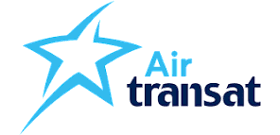 Air Transat’s New Montreal-Dakar Route Opens Direct Gateway Between Canada and Sub-Saharan Africa
Air Transat’s New Montreal-Dakar Route Opens Direct Gateway Between Canada and Sub-Saharan Africa
The African aviation landscape is set for a transformative boost as Air Transat announces the launch of a groundbreaking nonstop service between Montreal and Dakar for the summer 2026 season. This new route, commencing on June 17, 2026, will be the only direct air link connecting Canada with Sub-Saharan Africa, a development that promises to reshape travel and business opportunities for both regions.
Operating twice weekly through October 21, the Montreal-Dakar flights will utilize the advanced Airbus A321LR, renowned for its fuel efficiency and long-range capabilities. This 3,897-mile journey is designed to serve a growing demand from the Senegalese diaspora in Quebec and to attract travelers eager to explore Senegal’s vibrant culture and scenic coastlines.
According to Air Transat’s Chief Revenue Officer, Sebastian Ponce, the new route is a direct response to the strong ties between Quebec and Senegal. “By offering this nonstop route, we are making travel easier for those who, until now, had to take long layovers in Europe,” he explains. The convenience of a direct flight is expected to significantly reduce travel times and enhance the overall passenger experience, especially for families and business travelers who previously relied on connecting flights through Casablanca, Paris, or Lisbon.
Montreal has long been a hub for flights to North Africa, with year-round services to cities such as Algiers, Casablanca, Marrakech, and Tunis. However, until now, there has been a notable gap in direct connectivity to West Africa, despite a robust market of 346,000 passengers traveling between Canada and West Africa in 2024. The Montreal-Dakar city pair alone accounted for 27,000 two-way passengers last year, making it the third-largest Canada-West Africa route. The introduction of this nonstop service is poised to capture a significant share of this market and stimulate further growth.
The Senegalese community in Canada has seen steady expansion, with the 2021 census recording approximately 10,000 people of Senegalese origin and more than 4,000 Senegalese students enrolled in Canadian institutions as of late 2023. Other French-speaking West African communities, including those from Ivory Coast, Cameroon, and Guinea, also have a strong presence in Canada, further underscoring the importance of direct air links for family, education, and business travel.
For African travel professionals, this new route represents a strategic opportunity to tap into the growing demand for seamless transatlantic connections. The direct Montreal-Dakar service is expected to foster increased tourism, facilitate business exchanges, and support the movement of students and professionals between the two continents. It also opens up new possibilities for tour operators, hospitality providers, and ground transport companies in Senegal, who can now market their services more effectively to Canadian travelers.
In addition to the Dakar launch, Air Transat is expanding its European summer network with a new Montreal-Reykjavik route, operating twice weekly from June 16 to September 27, 2026, using the Airbus A321ceo. This move marks Air Transat’s return to the Icelandic market, which has experienced significant changes in recent years. Icelandair withdrew from Montreal in 2022, and the collapse of Wow Air in 2019 left Air Canada as the sole operator. Despite these shifts, demand has rebounded, with Montreal-Reykjavik traffic reaching 11,500 passengers in 2024, a 32% increase year on year.
Air Transat’s network expansion doesn’t stop there. The airline has also confirmed the launch of a Montreal-Agadir service for next summer and will increase frequencies on the Montreal-Valencia route, which debuted in June 2025. Additional plans for summer 2026 include a weekly Quebec City-Marseille service and a three-times-weekly Ottawa-London Gatwick route, further strengthening Air Transat’s position as a key player in connecting Canada with diverse international destinations.
For Africa’s travel sector, the introduction of direct flights to Canada is a game-changer. It not only simplifies travel logistics but also enhances the continent’s appeal as a destination for Canadian tourists, investors, and students. Senegal, with its rich cultural heritage, stunning beaches, and dynamic urban centers, stands to benefit from increased visitor arrivals and heightened international visibility. The new route also supports the broader trend of airlines targeting underserved transatlantic niches, leveraging modern aircraft like the A321LR to open up profitable long-haul markets that were previously out of reach for narrowbody fleets.
As African aviation continues to evolve, the focus on direct connectivity, efficient aircraft, and market-driven route development will be crucial. Air Transat’s bold move into the Montreal-Dakar corridor sets a precedent for other carriers to explore similar opportunities, particularly as demand for travel between Africa and North America continues to rise. The ripple effects are likely to be felt across the travel value chain, from airport operators and ground handlers to hotels and tour companies, all of whom stand to gain from the increased flow of passengers and business activity.
Looking ahead, the success of the Montreal-Dakar route could inspire further expansion into other West African destinations, fostering even deeper ties between Canada and the continent. For African travel professionals, staying attuned to these developments and adapting their offerings to meet the needs of a more connected, global clientele will be key to thriving in the years to come.
